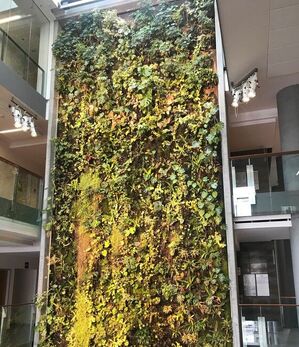AuthorDr Victoria Shepherd Archives
March 2024
Categories |
Back to Blog
COLOUR12/2/2024 I am well over halfway through this visit to Canada for the first leg of my Fellowship exploring advance research planning and I am so grateful to all those who have so generously their time to speak to me, listen/watch seminars I have been presenting in, ask insightful questions, and link me to other people – their engagement with the topic has been overwhelmingly useful (and hopefully of interest to them)! This has included people working in fields such as bioethics, law, social sciences, clinical trials, advance care planning, and inclusive research, and from a range of clinical specialties and across care settings, spanning from Toronto to Kingston, and then on to Ottawa. I cannot thank them enough!
Through these discussions in coffee shops, meeting rooms, offices and lecture theatres I have heard about peoples’ personal and professional experiences, some related work already happening and planned, and about different networks and collaborations who have shared interests in this area. I have also heard a lot about the complexities and challenges that are often encountered – and about strategies and activities that may help address them. Amongst all of this has been the core message that supporting people involved in what can be very difficult circumstances is key, and of the importance of communication. This includes researchers communicating with participants, their families, and research ethics committees, and encouraging people to speak to those close to them about their values, wishes and preferences (including about research) in a way that prepares them to make decisions on their behalf should they be in a position where they are unable to communicate for themselves. It has also shown me the value of actually meeting people and having conversations, whilst spending time learning more about the cultural and societal factors (and the climate and geography) that influence their experiences, in a way that just cannot be gained through online meetings or via email exchanges. The best way of describing it is like seeing something in colour rather than in greyscale – it brings richness and life to things that might otherwise appear one dimensional. Given the complexity of the issues I’m exploring, seeing the issue from all sides and in full colour is certainly helping my understanding, and hopefully will help me to bring some clarity to some of these issues by sharing what I’ve learnt. (The photo above is from a living wall in the main atrium of the Social Sciences Building at the University of Ottawa which contains 2,000 plants from 12 different species – what the image isn't able to capture is the sounds of water gently trickling through it!) Comments are closed.
|

 RSS Feed
RSS Feed
